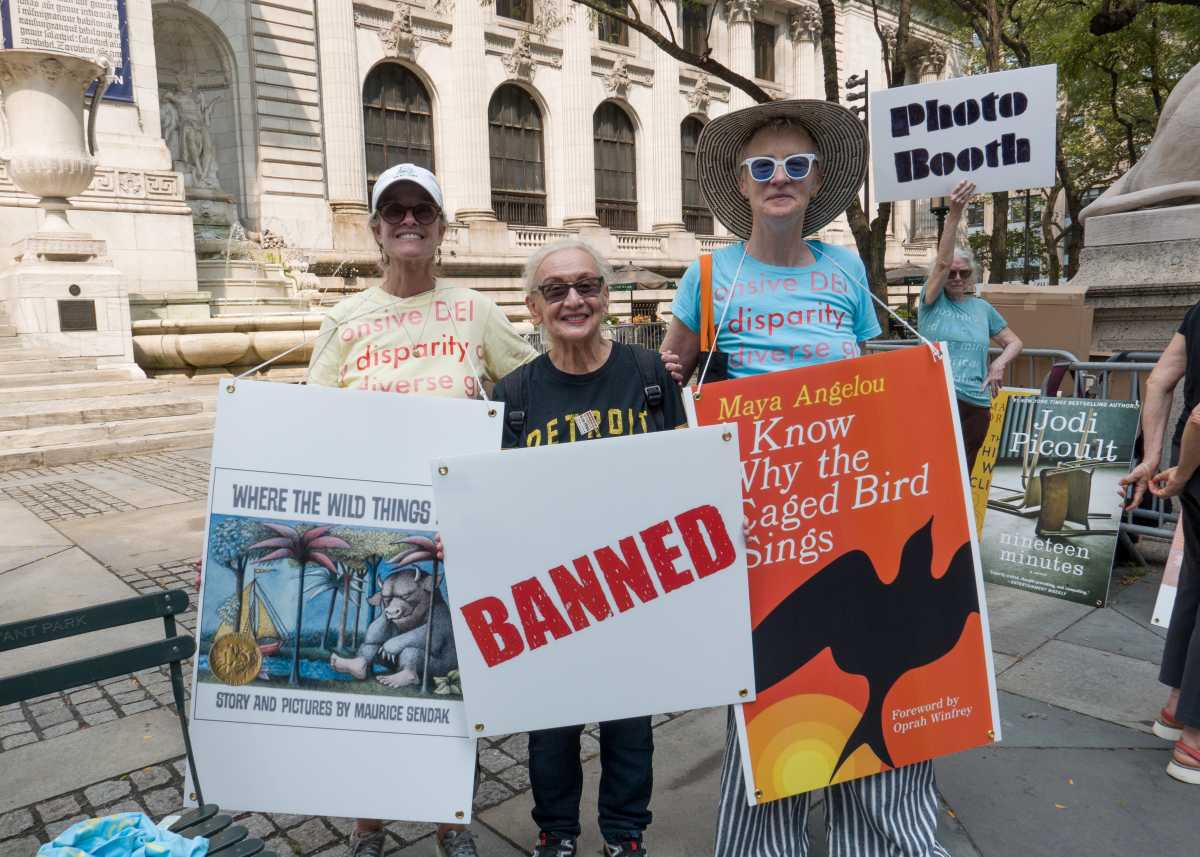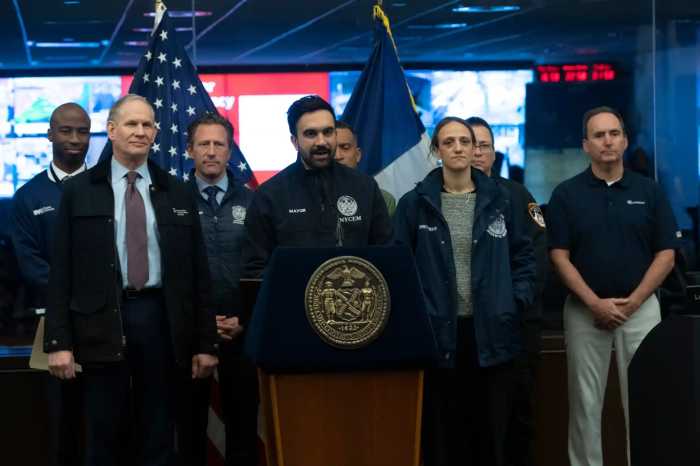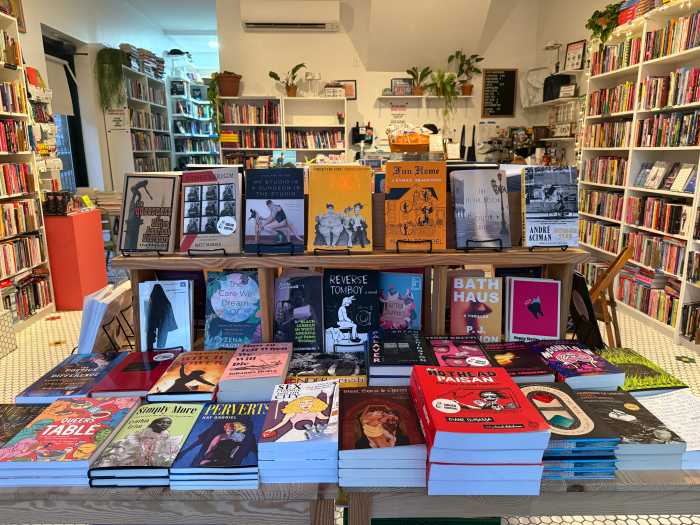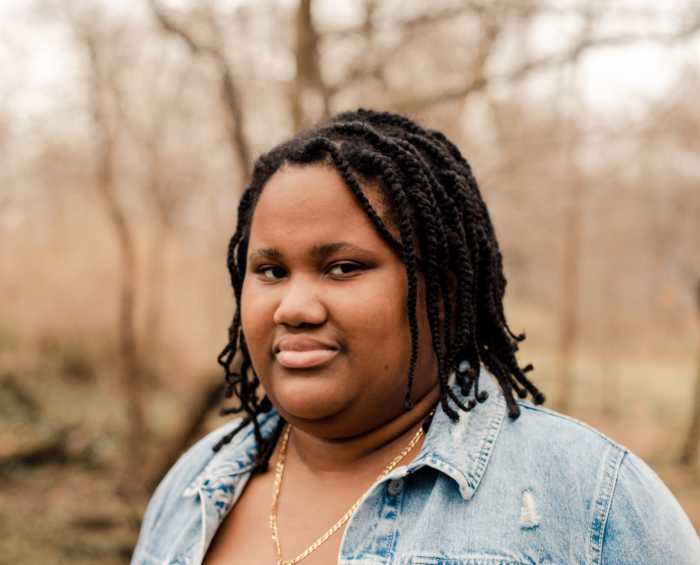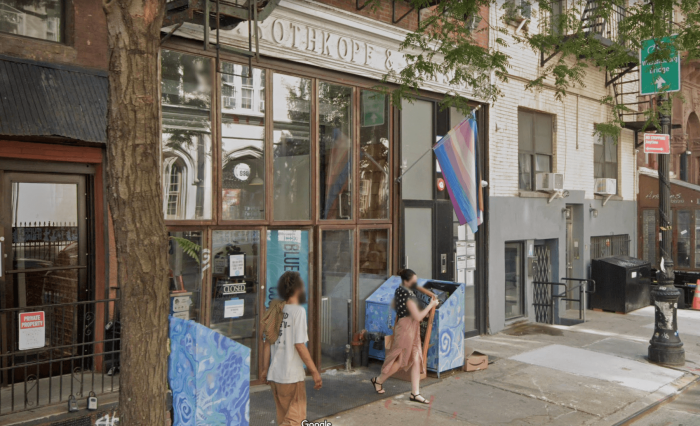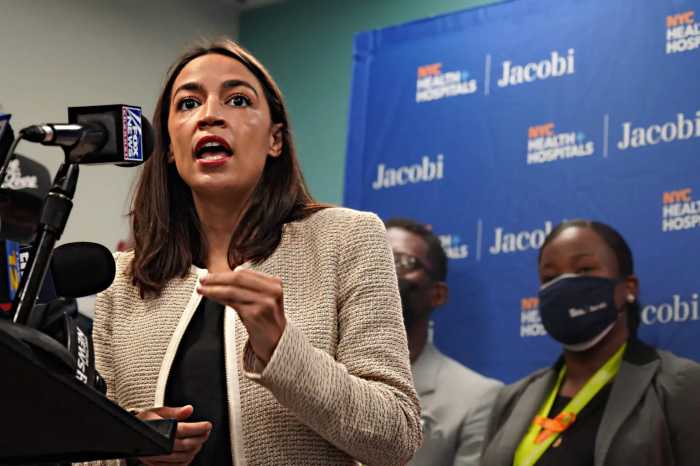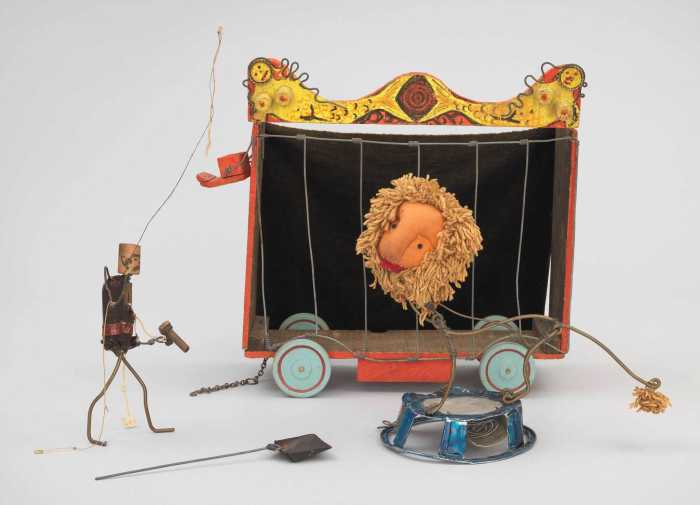Keen to spark a conversation and fight censorship in a lighthearted manner, a group of activists stood proudly and defiantly in front of the New York Public Library in Bryant Park on Saturday, Sept. 6, in honor of the written word.
“Our intellectual freedom and our right to access perspectives and experiences that are not the same as our own is really important,” said Anne Maguire, a longtime LGBTQ activist and founding member of the Lesbian Avengers, who created the banned books brigade.
Together, she and three other individuals — Marilyn Oliva, Ann Holder and Martin Quinn — printed out 50 larger-than-life, brightly colored book covers, a portion of which they brought with them to the library’s steps in recognition of National Read a Book Day. The books ranged in their genre and the age of their targeted audience, from “Captain Underpants” to “The Handmaid’s Tale,” but had one common factor between them: They have all been banned in one or more places across the United States.
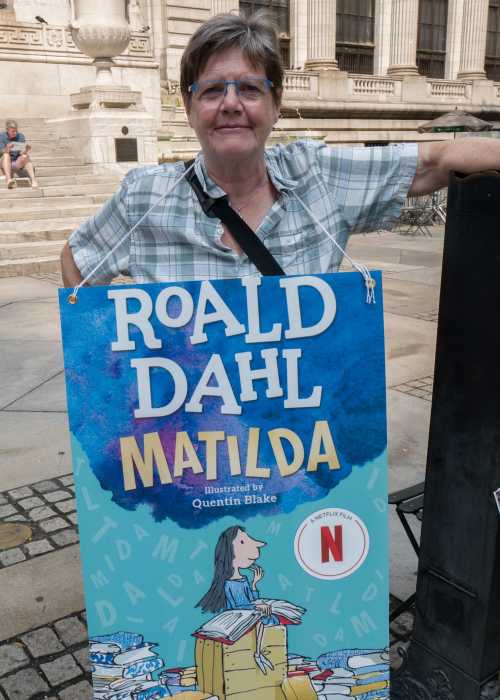
Book bans are on the rise in the country; the nonprofit PEN America estimates that nearly 16,000 titles have been prohibited in public schools since 2021, with more than 10,000 making the list in the 2023-24 school year, many of which discuss race, racism and LGBTQ topics.
Many of the books brought out by the group were written by LGBTQ authors, like “I am Jazz,” a children’s book that explores trans identity.
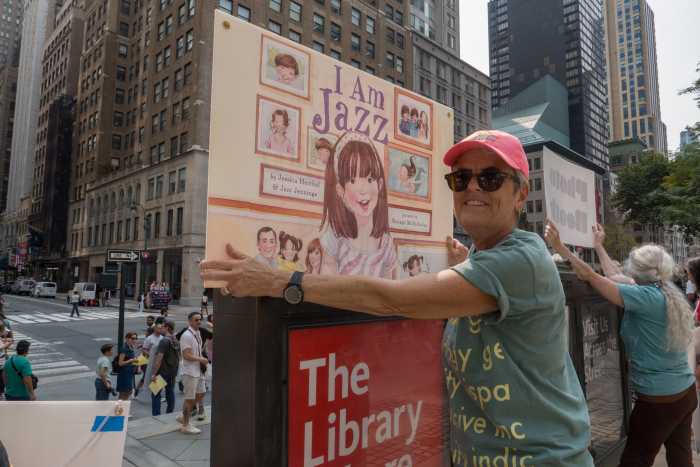
“We wanted to pick books that we thought people might be very surprised by,” Maguire explained to Gay City News.
She was inspired by a project she saw recently that documented words that were banned by the Trump administration on government websites, such as the T and Q from LGBTQ on the National Park Service website.
“Especially around a time of authoritarianism, free speech is one of the first rights we have to be attacked,” Maguire said.
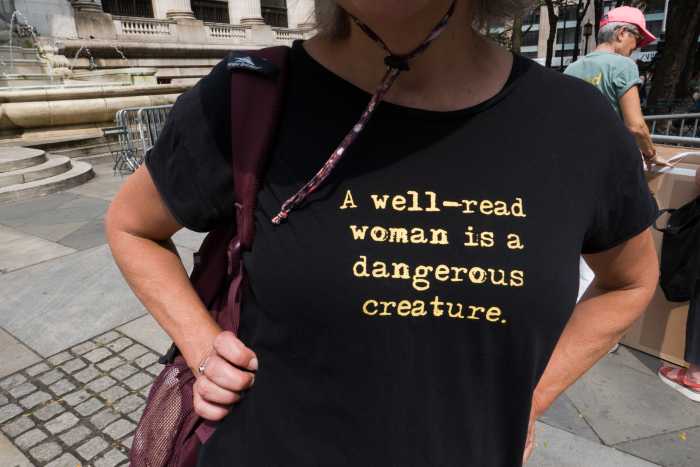
Her goal, in picking a busy location in the center of Manhattan that is frequented by tourists, was to reach people with a wide range of experiences and beliefs, asking them to consider what it means when our access to the written word is restricted. People also had the opportunity to pose with their favorite title.
Maguire said she wanted to approach the subject in a relaxed, welcoming manner that would draw people in.
“It automatically opens up conversations,” she said, “and I find that refreshing for a change, instead of being on one side of something shouting at the other side, I really like just being able to interact with people and children. Children are very vocal about this, when they see books that they love like ‘Wicked’ or ‘Charlotte’s Web’ they’re kind of shocked.”
The project has reached parents and teachers, who like to discuss what has been banned in their states, she explained. “Some are very shocked by the bans and some are like, ‘Oh, you know, they’re also trying to ban vaccines,’ so it’s that kind of conversation.”
The group is on Instagram at the handle @nobooksbanned. They are planning more actions soon, including during Banned Books Week, which is between Oct. 5 and 11, and Freedom To Read Community Action Day, which is celebrated on Oct. 19.

